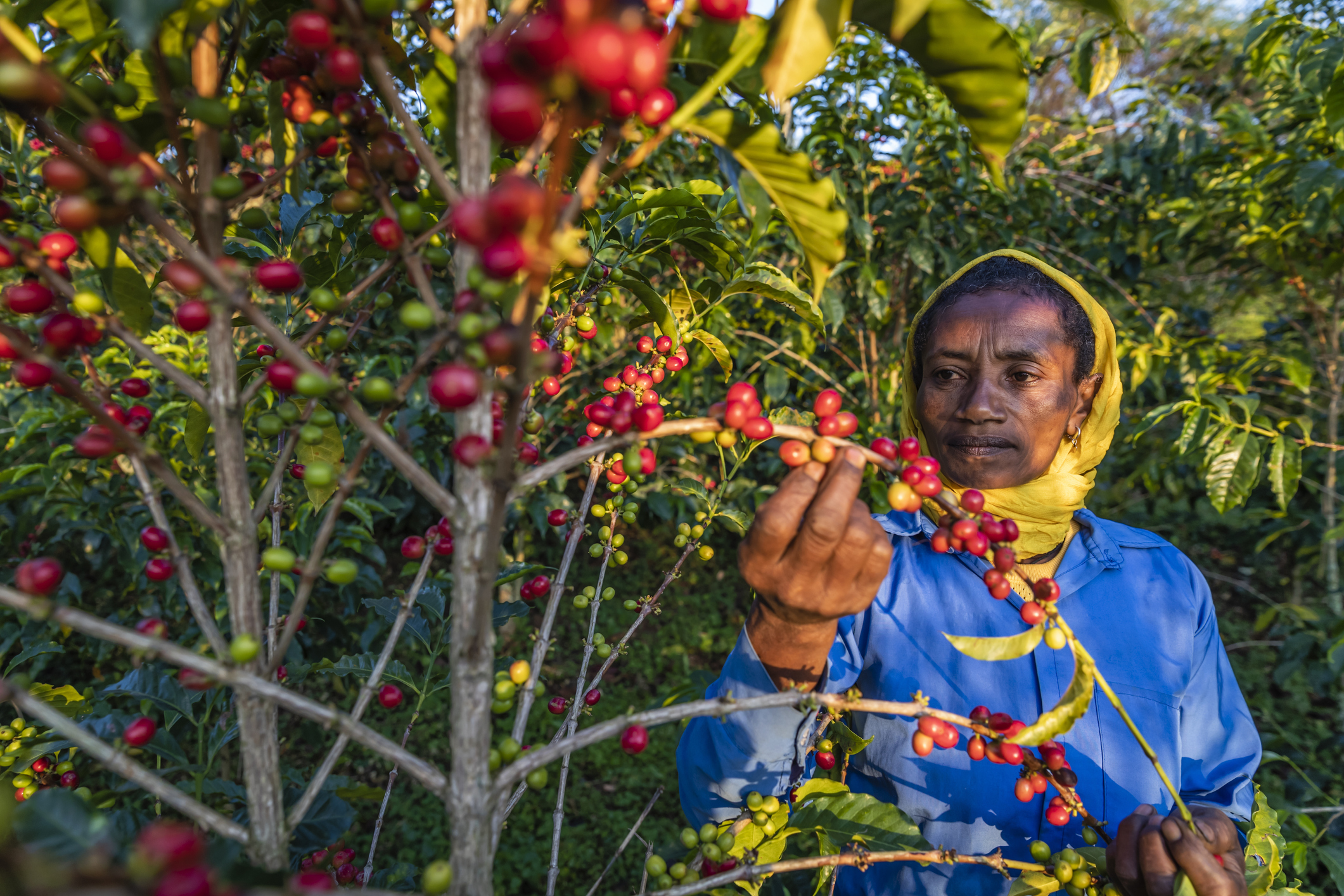Another traceable coffee chain: Fairtrade Original is spilling the beans
Starting today, coffee drinkers can trace Fairtrade Original’s Ugandan coffee beans all the way back to the farmer. Fairtrade Original joins the list of companies that use our traceability platform, Trace, to gain more insight into their chain and provide consumers with evidence of grand brand promises.
The well-known Coffee Barometer left no doubt about it this year: forests are still giving way to coffee plantations on a massive scale, and coffee farmers are getting the short end of the stick. The answer begins with traceability and transparency: as a coffee label, you need to know where your beans come from and what problems arise in your chain, and allow your coffee drinkers insight into all this.
So it’s good news that Fairtrade Original is spilling the beans about their Ugandan coffee today, using our traceability platform Trace. As our director, Sander de Jong, says: “Traceability and transparency are often lacking in production chains. That means a company on this side of the chain may not know who the farmers behind their coffee are, let alone whether those farmers are earning a decent income. With today’s resources, that really is no longer justifiable.”
On Trace, Fairfood brings everything together: traceability – knowing where the coffee comes from; transparency – giving consumers insight into that journey; and evidence – backing up your brand promises. Sander: “In short: Trace allows you to check whether Fairtrade Original really does what they claim to do in Uganda.”
Living Income Reference Price
One such promise, which you can check yourself starting today, is the payment of a so-called Living Income Reference Price (LIRP) – the price that Fairtrade Original must ensure reaches the coffee farmer in order to proportionately contribute to a living income. That means: if all of the farmer’s buyers paid the same price, he or she should in essence be able to earn a living income.
A living income is the income a farmer needs to cover her or his production costs and afford a decent standard of living. To verify the LIRP payment, we collected receipts throughout the chain. Hundreds of handwritten receipts have been digitised and are now available in Trace.

Trace has offered us important insights into exactly how the price flows at farmer level and which changes we could make right away to realise small improvements
Lotje Kaak, coffee sourcing manager at Fairtrade Original says about the project: “I am proud that we have taken this first step now. Trace has provided us with important insights into exactly how the price flows back to the farmer and which changes we could make right away to realise small improvements.”
3 projects to improve the farmer’s income
It is important to note that the LIRP only leads to a living income for farmers who own sufficient land and productive coffee bushes. In order to also support farmers with less land or, for example, old coffee bushes, Fairtrade Originals in Uganda is additionally implementing three projects that should increase income in other ways.
For example, a project aimed at sustainable agriculture that trains farmers in sustainable soil management and biological control of diseases and pests for the coffee plant. But also: setting up credit funds that allow 891 farming households to purchase an energy-efficient stove, which means less forest cut down for firewood. You can now check the status of these projects in Trace as well.
Lotje concludes: “I hope that we set an example for other coffee brands with Trace. It is high time for everyone to take responsibility for the unfair distribution in the chain. We must work towards coffee that includes a sustainable future.”
See here the full journey of this coffee and all the evidence for Fairtrade Original’s sustainability promises!
This project is part of the 5-year RECLAIM Sustainability! programme, which Fairfood is implementing together with Solidaridad, Trust Africa and Business Watch Indonesia.
Read more

